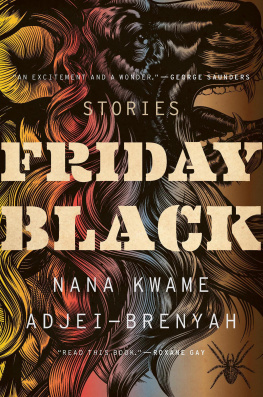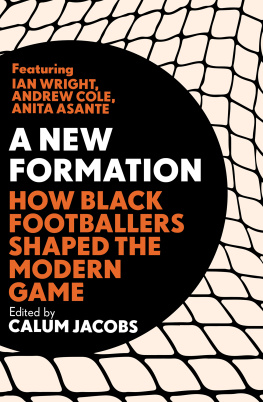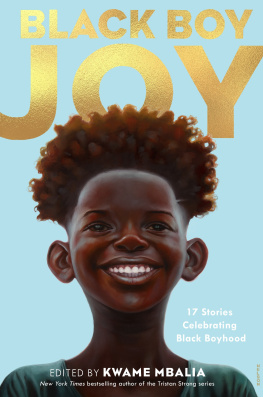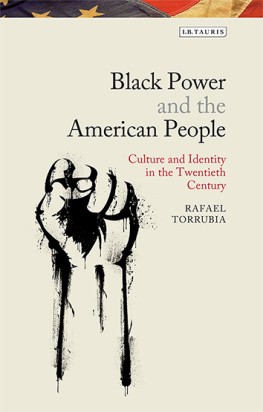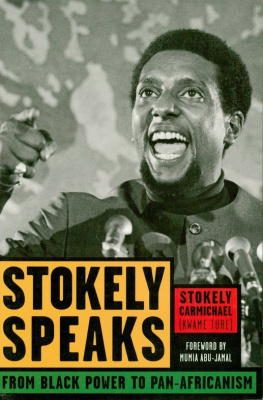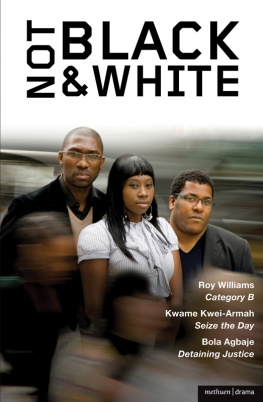Copyright 2018 by Nana Kwame Adjei-Brenyah
All rights reserved
For information about permission to reproduce selections from this book, write to or to Permissions, Houghton Mifflin Harcourt Publishing Company, 3 Park Avenue, 19th Floor, New York, New York 10016.
hmhco.com
Library of Congress Cataloging-in-Publication Data
Names: Adjei-Brenyah, Nana Kwame author.
Title: Friday black / Nana Kwame Adjei-Brenyah.
Description: Boston : Houghton Mifflin Harcourt, 2018.
Identifiers: LCCN 2018006635 (print) | LCCN 2017061489 (ebook) |
ISBN 9781328915139 (ebook) | ISBN 9781328911247 (trade paper)
Classification: LCC PS3601.D49 (print) | LCC PS3601.D49 A6 2018 (ebook) |
DDC 813/.6dc23
LC record available at https://lccn.loc.gov/2018006635
Things My Mother Said was first published in slightly different form in Foliate Oak Literary Magazine, September 2014.
In Retail was published in Compose: A Journal of Simply Good Writing, Fall 2014.
The Finkelstein 5 was published in slightly different form in Printers Row, July 2016.
Cover design by Mark R. Robinson
Cover images Getty Images
Author photograph Limitless Imprint Entertainment
v1.1018
For my mom, who said,
How can you be bored?
How many books have you written?
Anything you imagine you possess.
Kendrick Lamar
The Finkelstein 5
Fela, the headless girl, walked toward Emmanuel. Her neck jagged with red savagery. She was silent, but he could feel her waiting for him to do something, anything.
Then his phone rang, and he woke up.
He took a deep breath and set the Blackness in his voice down to a 1.5 on a 10-point scale. Hi there, how are you doing today? Yes, yes, I did recently inquire about the status of my application. Well, all right, okay. Great to hear. Ill be there. Have a spectacular day. Emmanuel rolled out of bed and brushed his teeth. The house was quiet. His parents had already left for work.
That morning, like every morning, the first decision he made regarded his Blackness. His skin was a deep, constant brown. In public, when people could actually see him, it was impossible to get his Blackness down to anywhere near a 1.5. If he wore a tie, wing-tipped shoes, smiled constantly, used his indoor voice, and kept his hands strapped and calm at his sides, he could get his Blackness as low as 4.0.
Though Emmanuel was happy about scoring the interview, he also felt guilty about feeling happy about anything. Most people he knew were still mourning the Finkelstein verdict: after twenty-eight minutes of deliberation, a jury of his peers had acquitted George Wilson Dunn of any wrongdoing whatsoever. He had been indicted for allegedly using a chain saw to hack off the heads of five black children outside the Finkelstein Library in Valley Ridge, South Carolina. The court had ruled that because the children were basically loitering and not actually inside the library reading, as one might expect of productive members of society, it was reasonable that Dunn had felt threatened by these five black young people and, thus, he was well within his rights when he protected himself, his library-loaned DVDs, and his children by going into the back of his Ford F-150 and retrieving his Hawtech PRO eighteen-inch 48cc chain saw.
The case had seized the country by the ear and heart, and was still, mostly, the only thing anyone was talking about. Finkelstein became the news cycle. On one side of the broadcast world, anchors openly wept for the children, who were saints in their eyes; on the opposite side were personalities like Brent Kogan, the ever gruff and opinionated host of Whats the Big Deal?, who had said during an online panel discussion, Yes, yes, they were kids, but also, fuck niggers. Most news outlets fell somewhere in between.
On verdict day, Emmanuels family and friends of many different races and backgrounds had gathered together and watched a television tuned to a station that had sympathized with the children, who were popularly known as the Finkelstein Five. Pizza and drinks were served. When the ruling was announced, Emmanuel felt a clicking and grinding in his chest. It burned. His mother, known to be one of the liveliest and happiest women in the neighborhood, threw a plastic cup filled with Coke across the room. When the plastic fell and the soda splattered, the people stared at Emmanuels mother. Seeing Mrs. Gyan that way meant it was real: theyd lost. Emmanuels father walked away from the group wiping his eyes, and Emmanuel felt the grinding in his chest settle to a cold nothingness. On the ride home, his father cursed. His mother punched honks out of the steering wheel. Emmanuel breathed in and watched his hands appear, then disappear, then appear, then disappear as they rode past streetlights. He let the nothing he was feeling wash over him in one cold wave after another.
But now that hed been called in for an interview with Stichs, a store self-described as an innovator with a classic sensibility that specialized in vintage sweaters, Emmanuel had something to think about besides the bodies of those kids, severed at the neck, growing damp in thick, pulsing, shooting blood. Instead, he thought about what to wear.
In a vague move of solidarity, Emmanuel climbed into the loose-fitting cargoes hed worn on a camping trip. Then he stepped into his patent-leather Space Jams with the laces still clean and taut as they weaved up all across the black tongue. Next, he pulled out a long-ago abandoned black hoodie and dove into its tunnel. As a final act of solidarity, Emmanuel put on a gray snapback cap, a hat similar to the ones two of the Finkelstein Five had been wearing the day they were murdereda fact George Wilson Dunns defense had stressed throughout the proceedings.
Emmanuel stepped outside into the world, his Blackness at a solid 7.6. He felt like Evel Knievel at the top of a ramp. At the mall hed look for something to wear to the interview, something to bring him down to at least a 4.2. He pulled the brim of his hat forward and down to shade his eyes. He walked up a hill toward Canfield Road, where hed catch a bus. He listened to the gravel scraping under his sneakers. It had been a very long time since hed had his Blackness even close to a 7.0. I want you safe. You gotta know how to move, his father had said to him at a very young age. Emmanuel started learning the basics of his Blackness before he knew how to do long division: smiling when angry, whispering when he wanted to yell. Back when he was in middle school, after a trip to the zoo, where hed been accused of stealing a stuffed panda from the gift shop, Emmanuel had burned his last pair of baggy jeans in his driveway. Hed watched the denim curl and ash in front of him with unblinking eyes. When his father came outside, Emmanuel imagined hed get a good talking-to. Instead, his father stood quietly beside him. This is an important thing to learn, his father had said. Together they watched the fire until it ate itself dead.
It was crowded at the bus stop. He felt eyes shifting toward him while pocketbooks shifted away. Emmanuel thought of George Wilson Dunn. He imagined the middle-aged man standing there in front of him, smiling, a chain saw growling in his hands. He decided to try something dangerous: he turned his hat backward so the shadow of the brim draped his neck. He felt his Blackness leap and throb to an 8.0. The people grew quiet. They tried to look superfriendly but also distant, as if he were a tiger or an elephant they were watching beneath a big tent. A path through the mass opened up for Emmanuel.
Soon, he was standing near the bench. A young woman with long brown hair and a guy wearing sunglasses above the brim of his hat both remembered they had to be somewhere else, immediately. An older woman remained sitting, and Emmanuel took the newly available seat beside her. The woman glanced toward Emmanuel as he sat. She smiled faintly. Her look of general disinterest made his heart sing. He turned his hat forward and felt his Blackness ease back to a still very serious 7.6. A minute later, the brown-haired woman returned and sat beside him. She smiled like someone had told her that if she stopped smiling her frantic, wide-eyed smile Emmanuel would blow her brains out.

